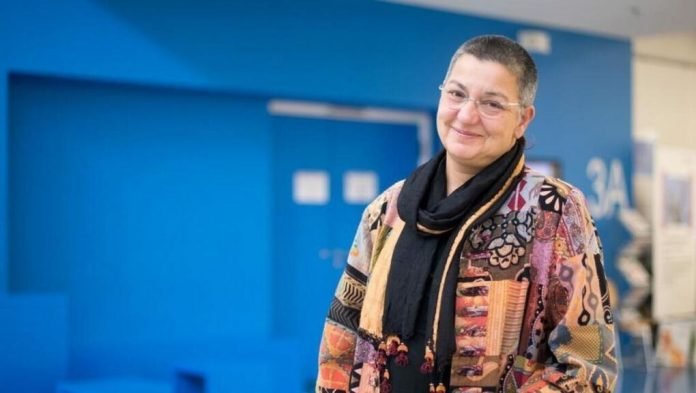The head of a leading doctors union in Turkey who was arrested on terrorist propaganda charges last month has said that her imprisonment is an attempt by the Turkish government to silence society and that she’s facing a “political” process, not a legal one, Turkish Minute reported, citing the BBC Turkish service.
Şebnem Korur Fincancı, 63, chairperson of the Turkish Medical Association (TTB), a forensic expert and a prominent human rights activist, was taken into custody at her home in İstanbul on Oct. 26 and arrested in Ankara, where she was brought for questioning, the next day.
Fincancı, whose arrest was prompted by a call she made urging a probe into the Turkish army’s alleged use of chemical weapons against Kurdish militants in northern Iraq, answered questions posed by BBC from Sincan Prison in Ankara through her lawyers.
When asked to comment on the accusations against her, Fincancı said she was facing a political process and not a legal one since arresting someone pending trial on terrorist propaganda charges was “not acceptable” in terms of the law and that her returning from abroad after learning about the investigation into her showed that there’s no reason to suspect that she poses a flight risk.
“There is an allegation. Defining a call [for a probe] as a crime and letting it lead to a house raid and arrest should be considered an attempt to silence the society, not me,” she added, referring to President Recep Tayyip Erdoğan’s Justice and Development Party (AKP) government, which is accused by many of silencing dissent.
Regarding her criticism of Medya Haber TV, during a live broadcast on which she talked about the allegations, Fincancı said she accused them of breaking her comments into pieces and using them in other broadcasts detached from their context and with additional commentary that caused her to sound like she was accusing Turkish army of using chemical weapons.
When asked about criticism voiced by her colleagues, who said she should have been more careful when choosing the press outlet to make such comments to because she is the head of the country’s leading doctors union, Fincancı said while she understood her colleagues’ concerns, she also hoped they understand that, as a human rights defender, she can’t ask about the editorial stance of a media outlet since it would be a violation of its freedom of expression and the public’s right to information.
“Moreover, I expect the society and my colleagues to also question the censorship of a significant part of the press, including some of the opposition channels, of me,” she added.
Fincancı also said, regarding the conditions at Sincan Prison, that she was “quite comfortable” and alone in a large ward where there’s ample ventilation. She added, however, that there was an environment of serious isolation, where prison guards prevent the inmates from seeing or greeting one another when they are meeting with their lawyers.
The Ankara Chief Public Prosecutor’s Office launched an investigation into Fincancı on charges of disseminating terrorist propaganda and insulting the state due to her remarks about the Turkish Armed Forces’ (TSK) alleged use of chemical weapons against militants from the outlawed Kurdistan Workers’ Party (PKK) in Iraq. Fincancı said she had examined video images and called for a probe.
Turkey has strongly rejected the allegations that appeared in media outlets close to the PKK that its army was using chemical weapons in its counterterrorism operations in northern Iraq.
The PKK is listed as a terrorist group by Turkey and much of the international community.















